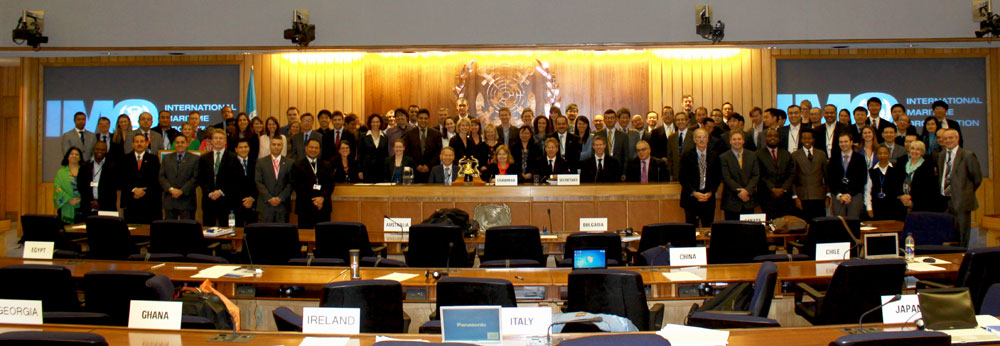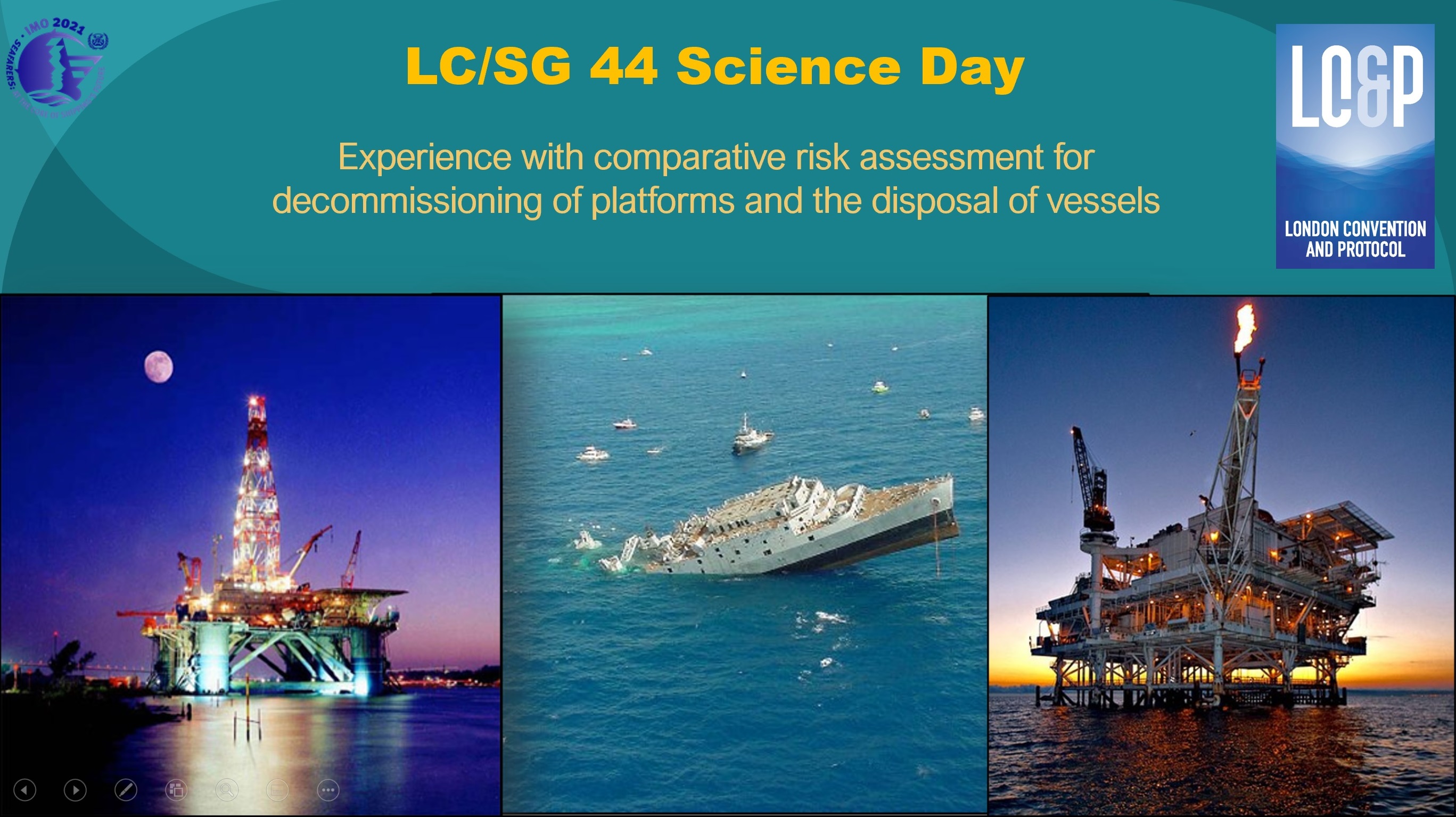Marine geoengineering

Overview
----------------------------------------------------------------------------------------------------------------------------------------------------------------------------------------------------------------Jump to events in: 2007 -> 2008 -> 2010 -> 2012 -> 2013 ->2014 -> 2014 -> 2015 -> 2022 -> 2023 (March) -> 2023 (October)
----------------------------------------------------------------------------------------------------------------------------------------------------------------------------------------------------------------
Marine geoengineering is defined as "a deliberate intervention in the marine environment to manipulate natural processes, including to counteract anthropogenic climate change and/or its impacts, and that has the potential to result in deleterious effects, especially where those effects may be widespread, long-lasting or severe".
There is growing interest in marine geoengineering techniques and their potential to cause pollution or other adverse effects on the marine environment. The London Protocol /London Convention parties identify four techniques for priority evaluation:
· enhancing ocean alkalinity (CDR);
· macroalgae cultivation and other biomass for sequestration including artificial upwelling (CDR);
· marine cloud brightening (SRM); and
· microbubbles/reflective particles/material (SRM).
· macroalgae cultivation and other biomass for sequestration including artificial upwelling (CDR);
· marine cloud brightening (SRM); and
· microbubbles/reflective particles/material (SRM).
Timeline
2007: Having decided that the scope of work of the LC and LP included ocean fertilization, the Contracting Parties worked to establish, a global, transparent and effective control and regulatory mechanism for ocean fertilization activities and other activities that fall within the scope of the LC/LP and have the potential to cause harm to the marine environment. The Parties Developed a Statement of Concern (LC-LP.1/Circ.14) where the governing bodies urged States to use the utmost caution when considering proposals for large-scale ocean fertilization operations, and took the view that, given the present state of knowledge regarding ocean fertilization, such large-scale operations were currently not justified.2008: Parties to the LP and LC adopted a resolution (LC-LP.1 (2008)), which stated that ocean fertilization activities fall within the purview of the LC/LP and that ocean fertilization activities other than legitimate scientific research should not be allowed.
2010: Parties adopted Resolution LC-LP.2(2010) on the “Assessment Framework for Scientific Research Involving Ocean Fertilization” which guides Parties on how to assess proposals for ocean fertilization research and provides detailed steps for completion of an environmental assessment, including risk management and monitoring.
2012: The Parties at the 35th meeting of the Scientific Groups of the London Convention and London Protocol identified a lack of suitable science overviews on ocean fertilization relevant for assessing impacts on the marine environment. A Working Group commenced work on a web-based repository of references relating to the application of the Ocean Fertilization Assessment Framework that could be accessible to the LC-LP Parties.
2013: Parties adopted resolution LP.4(8), amending the Protocol to include marine geoengineering engineering activities. The amendments add a new article 6bis which states that "Contracting Parties shall not allow the placement of matter into the sea from vessels, aircraft, platforms or other man-made structures at sea for marine geoengineering activities listed in Annex 4, unless the listing provides that the activity or the sub-category of an activity may be authorized under a permit". A new Annex 4 on "Marine geoengineering" lists "Ocean fertilization", defined as "any activity undertaken by humans with the principal intention of stimulating primary productivity in the oceans. Ocean fertilization does not include conventional aquaculture, or mariculture, or the creation of artificial reefs. " The Annex provides that all ocean fertilization activities other than those referred to above shall not be permitted. An ocean fertilization activity may only be considered for a permit if it is assessed as constituting legitimate scientific research taking into account any specific placement assessment framework.
A new Annex 5 added the Assessment Framework for matter that may be considered for placement under Annex 4. The Assessment framework provides that Contracting Parties should consider any advice on proposals for activities listed from independent international experts or an independent international advisory group of experts.
2014: The Meeting of Contracting Parties established an intersessional correspondence group to work on the arrangements under which an independent expert advice group (IEAG), as referred to in paragraph 12 of the new annex 5 to the Protocol, could be operationalized. The roster is intended to provide Parties with experts capable of advising on assessing marine geoengineering activities listed under annex 4 to the LP or under consideration for listing. Contracting Parties to the London Protocol and to the London Convention as well as observers may nominate experts to the roster.
Parties also determined at this meeting that a document for considering criteria and procedures for the inclusion of activities on the new Annex 4 to the London Protocol was considered to be necessary; in that regard, the Contracting Parties developed guidance for listing additional marine geoengineering activities in annex 4.
2015: The 2015 Science Day session, held during the joint meetings of LC/LP Scientific Groups was centered on "Marine geoengineering", and scientists from Australia, Canada, Germany, the Netherlands, and United Kingdom delivered ten presentations on this topic. The presentations and report of the proceedings can be downloaded here.
2022: Parties adopt a statement at the 44th meeting of the Governing Bodies of the LC/LP (LC 44/LP 17), identifying the need to carefully evaluate marine geoengineering techniques, which may have potential for mitigating the effects of climate change but may have adverse impacts on the marine environment. The statement identifies four techniques which need priority evaluation, involving either carbon dioxide removal (CDR) or solar radiation modification (SRM). The statement notes that marine geoengineering should not be considered as a substitute for measures to reduce carbon dioxide emissions, there are investigations into the potential for marine geoengineering to mitigate the effects of climate change with multiple interests driving urgency for deployment. (See the statement attached in the box located at the top-right corner)
2023: The LC/LP Scientific Groups agreed at their 2023 meeting (LC/SG 46/LP/SG 17) that the four marine geoengineering techniques, identified in the 2022 statement, have the potential to cause deleterious effects that are widespread, long-lasting or severe.

Also, in 2023 the LC/LP Scientific Groups held the 2023 Science Day symposium on the topic ʺEmerging technologies in marine geoengineeringʺ and which included high-level presentations from a range of expert speakers representing applied science, governments, university and agencies. The main issues addressed included concerns regarding performing marine geoengineering techniques, the potential benefits versus risks of deployment, the definition of nature-based solutions, the critical issues in marine CDR Measurement, Reporting, and Verification, and the need for, and importance of, sharing data. The presentations can be downloaded here.
October 2023: A statement was adopted by the 45th Consultative Meeting of Contracting Parties to the London Convention and the 18th Meeting of Contracting Parties to the London Protocol (LC 45/LP 18), which met at the IMO Headquarters from 2-6 October 2023.
The statement states that: each of the four marine geoengineering techniques prioritized for evaluation has the potential for deleterious effects that are widespread, long-lasting or severe; and there is considerable uncertainty regarding their effects on the marine environment, human health, and on other uses of the ocean.(See the statement attached in the box located at the top-right corner)
Progress with ratification of the 2013 amendment to the London Protocol
To date IMO has received six instruments of acceptance of the amendment to the London Protocol to regulate the placement of matter for ocean fertilization and other marine geoengineering (resolution LP.4(8)) activities from:· the United Kingdom
· Finland
· the Kingdom of the Netherlands
· Norway
· Estonia
· Germany
Comprehensive information on the status of multilateral Conventions and instruments in respect of which the International Maritime Organization or its Secretary-General performs depositary or other functions, including the London Protocol, can be found here.